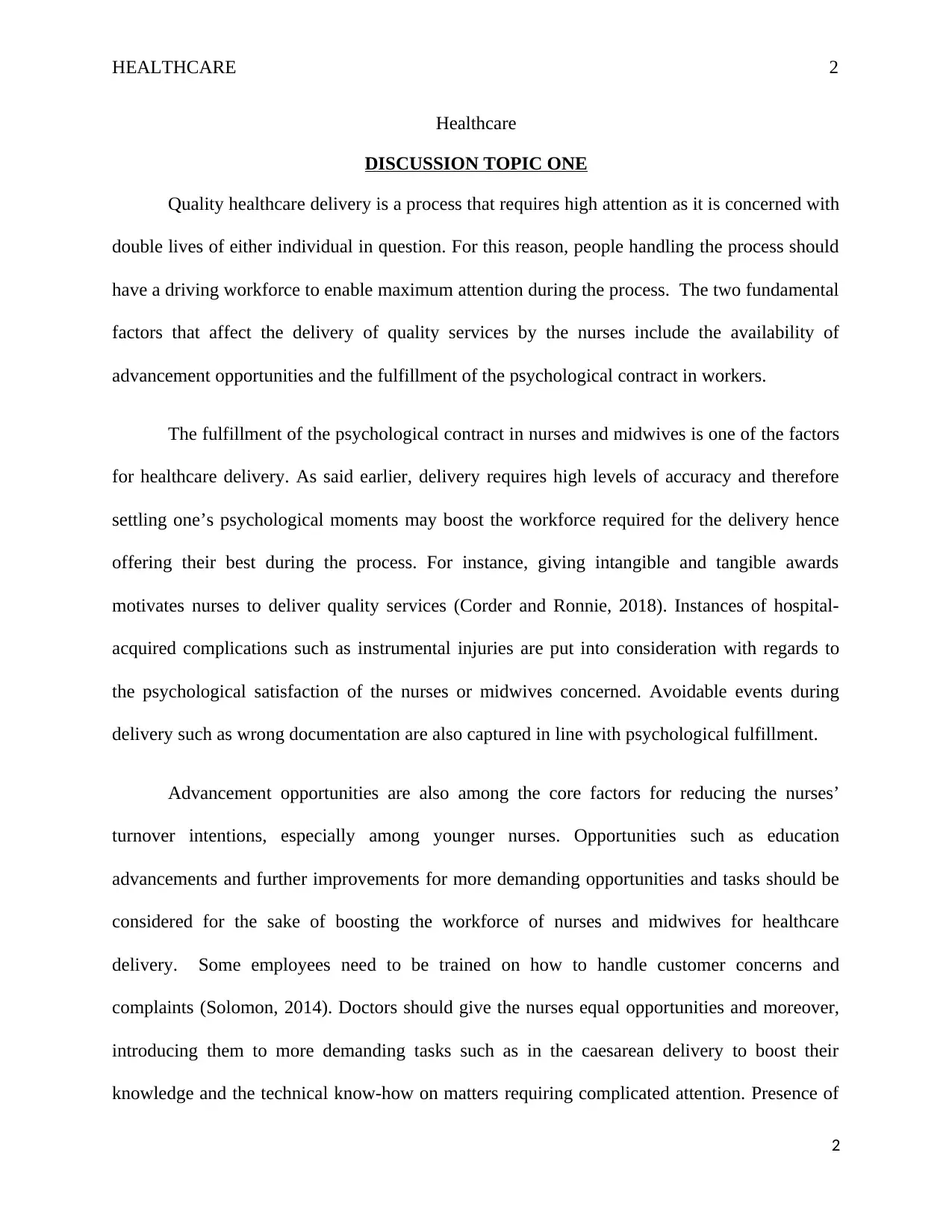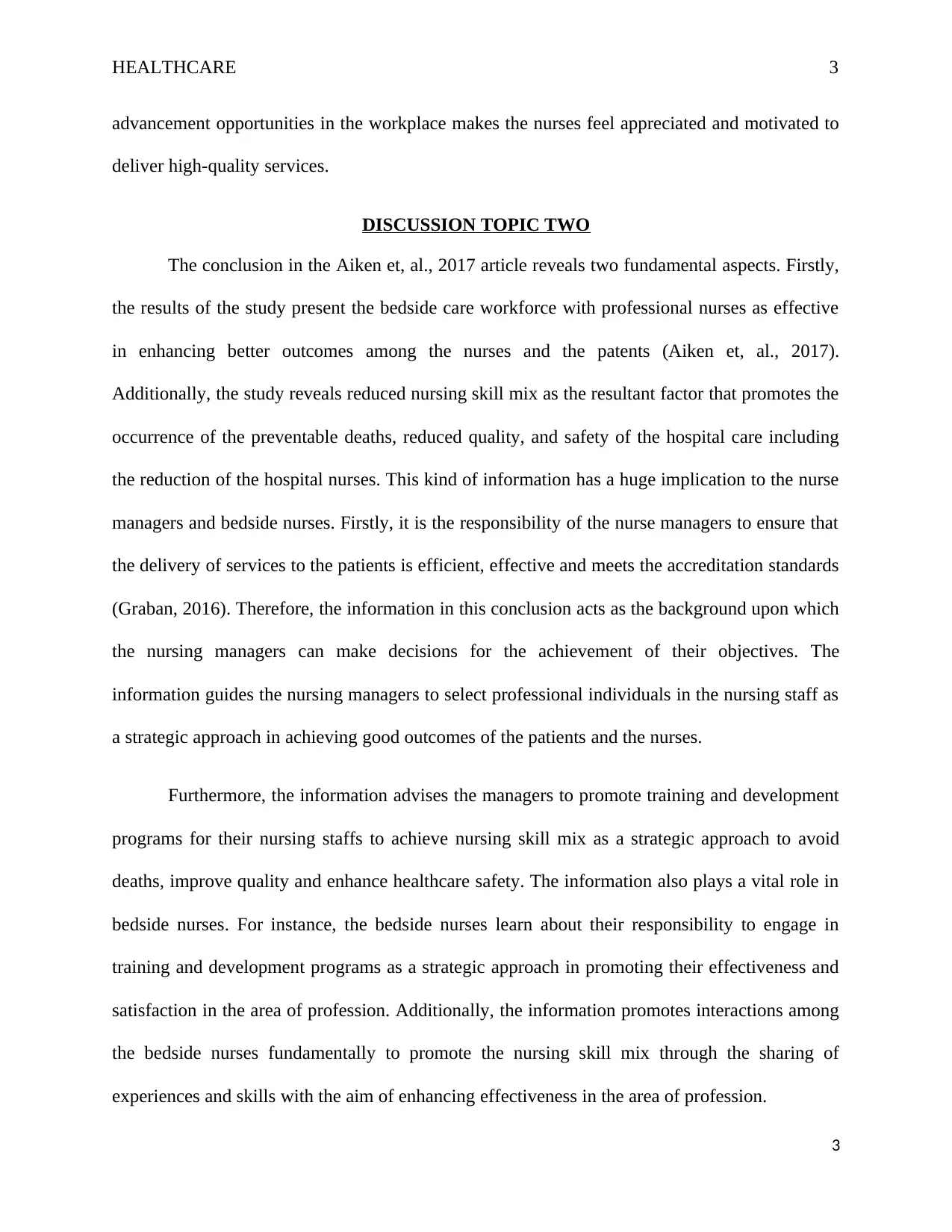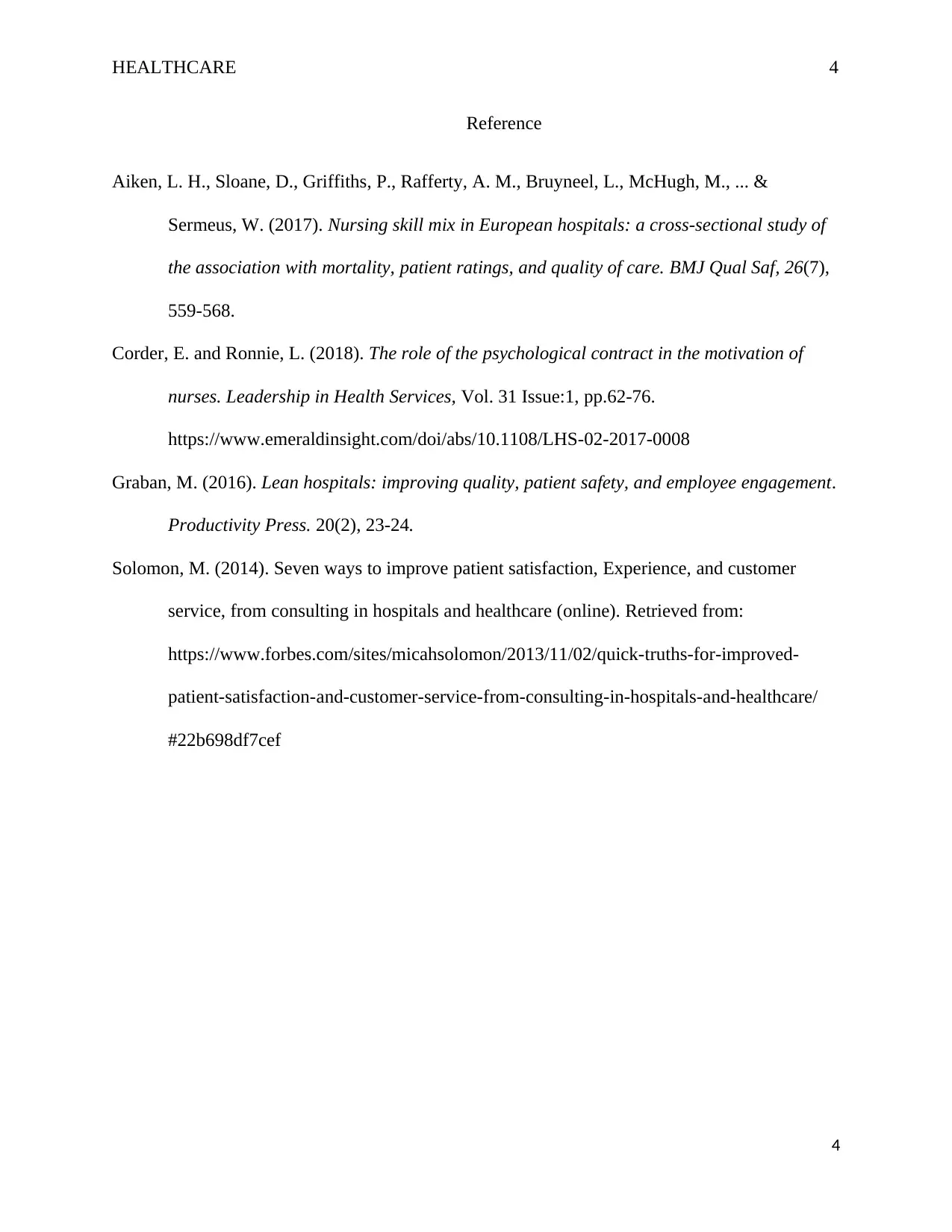Healthcare Discussion: Factors Affecting Healthcare Quality
VerifiedAdded on 2023/04/07
|4
|711
|181
Discussion Board Post
AI Summary
This discussion post examines two key topics related to healthcare quality and nursing. The first topic focuses on the factors affecting the delivery of quality services by nurses, highlighting the importance of advancement opportunities and the fulfillment of the psychological contract, including tangible and intangible rewards. The second topic discusses the implications of a study on nursing skill mix in European hospitals, emphasizing the role of professional nurses in enhancing patient outcomes and the impact of reduced nursing skill mix on patient safety. The post underscores the responsibilities of nurse managers in ensuring efficient service delivery and the importance of training and development for bedside nurses to promote effectiveness and satisfaction. This is a comprehensive analysis for students seeking to understand the complexities of healthcare delivery and the critical roles of nurses.
1 out of 4





![[object Object]](/_next/static/media/star-bottom.7253800d.svg)